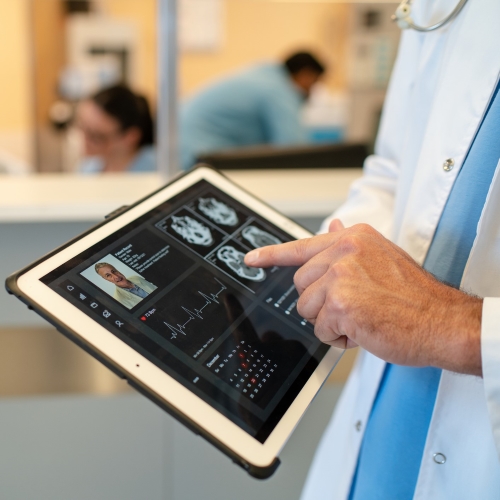08 October 2025
 Australia’s hospital medical records hold a treasure trove of information that could transform healthcare; however each state has maintained very different systems, and generating insights into best practice healthcare has been difficult.
Australia’s hospital medical records hold a treasure trove of information that could transform healthcare; however each state has maintained very different systems, and generating insights into best practice healthcare has been difficult.
Now, a new $9.5 million national initiative, the Australian Health Data Evidence Network (AHDEN), will change that by harmonising hospital electronic medical records (EMRs) across the country, while keeping patient information private and secure at their original source.
Led by Professor Nicole Pratt from the University of South Australia, in partnership with the Australian Research Data Commons (ARDC), universities across Australia and state health departments, the initiative will bring hospital data into line with international standards so it can be securely used for large-scale research.
“Hospital records contain information on diagnoses, treatments, outcomes and patient demographics,” says Professor Pratt.
“By harmonising this information, we can uncover patterns in disease, measure the effectiveness of treatments and procedures, and produce the evidence that is needed to improve clinical guidelines leading to better patient care.”
One of the major benefits is expected to be a faster response to major health threats such as future pandemics.
“When COVID-19 emerged in 2020, Australia’s healthcare data was not harmonised, unlike some other countries such as South Korea,” Professor Pratt says.
“This made it difficult to get an accurate picture of how the virus was spreading across the country and the effectiveness of treatments and vaccines, especially in vulnerable people. Once the AHDEN initiative is implemented we will be able to identify and respond to future pandemics and major health threats much faster.”
The three-year initiative will use the OMOP Common Data Model, an international gold standard that allows health systems to analyse and compare data in a secure and consistent way.
This will help Australian researchers collaborate on global studies, benchmark health outcomes against other countries, and generate trustworthy evidence to guide healthcare policy.
Dr Adrian Burton, ARDC Director of the People Research Data Commons, says AHDEN will provide lasting benefits.
“By correlating hospital data nationally, we’re enabling researchers to generate real-world evidence that can transform our health system,” he says. “And because we use a globally recognised standard, our researchers can now work with hospitals around the world in massive collaborations to establish powerful evidence to address humanity’s biggest health challenges.”
The benefits of a unified hospital data system include:
- Better insights – enabling earlier detection of health issues and evaluation of treatment effectiveness.
- Stronger evidence – supplementing clinical trials, and supporting healthcare guidelines and policy decisions.
- Great equity – helping identify gaps in care and ensuring diverse populations are represented.
- Global collaboration – allowing Australia to contribute to international studies at scale whilst keeping data secure.
Professor Pratt says the initiative a turning point for Australian healthcare research.
“This is a major step forward in unlocking the value of electronic health records. With secure and reliable analytics, we can generate evidence that leads to safer care, better outcomes and smarter decision making for all Australians.”
AHDEN will also provide training in data governance and analytics, ensuring hospitals, clinicians and researchers across the country have the skills to work with this powerful new resource.
AHDEN is a co-investment partnership with the Australian Research Data Commons (ARDC) through the People Research Data Commons (DOI:10.3565/rfrn-mj63). The ARDC is enabled by the Australian Government’s National Collaborative Research Infrastructure Strategy (NCRIS).
…………………………………………………………………………………………………………………………
Researcher contact: Professor Nicole Pratt E: nicole.pratt@unisa.edu.au
Media contact: Candy Gibson M: +61 434 605 142 E: candy.gibson@unisa.edu.au




